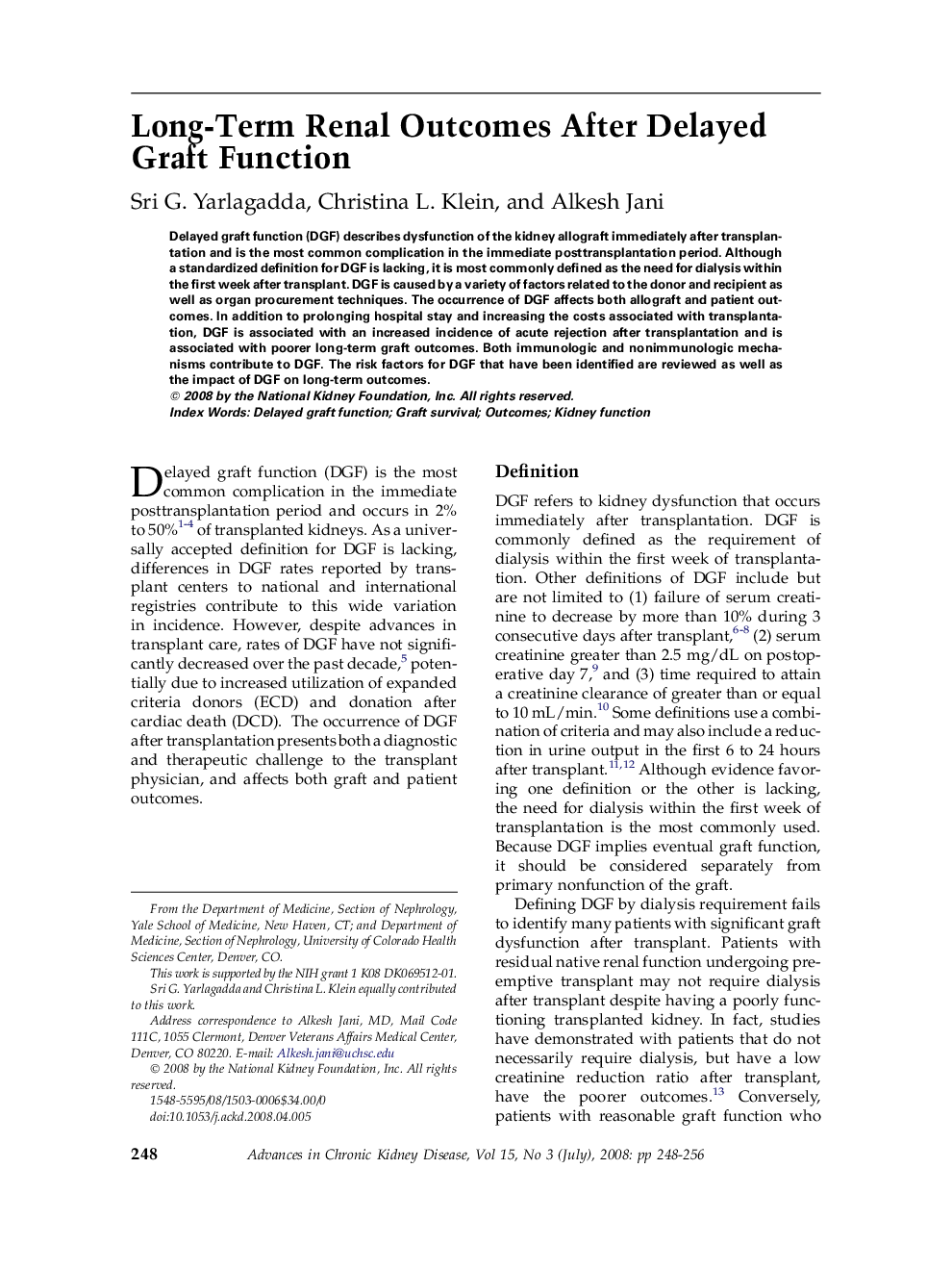| Article ID | Journal | Published Year | Pages | File Type |
|---|---|---|---|---|
| 3846940 | Advances in Chronic Kidney Disease | 2008 | 9 Pages |
Abstract
Delayed graft function (DGF) describes dysfunction of the kidney allograft immediately after transplantation and is the most common complication in the immediate posttransplantation period. Although a standardized definition for DGF is lacking, it is most commonly defined as the need for dialysis within the first week after transplant. DGF is caused by a variety of factors related to the donor and recipient as well as organ procurement techniques. The occurrence of DGF affects both allograft and patient outcomes. In addition to prolonging hospital stay and increasing the costs associated with transplantation, DGF is associated with an increased incidence of acute rejection after transplantation and is associated with poorer long-term graft outcomes. Both immunologic and nonimmunologic mechanisms contribute to DGF. The risk factors for DGF that have been identified are reviewed as well as the impact of DGF on long-term outcomes.
Related Topics
Health Sciences
Medicine and Dentistry
Nephrology
Authors
Sri G. Yarlagadda, Christina L. Klein, Alkesh Jani,
